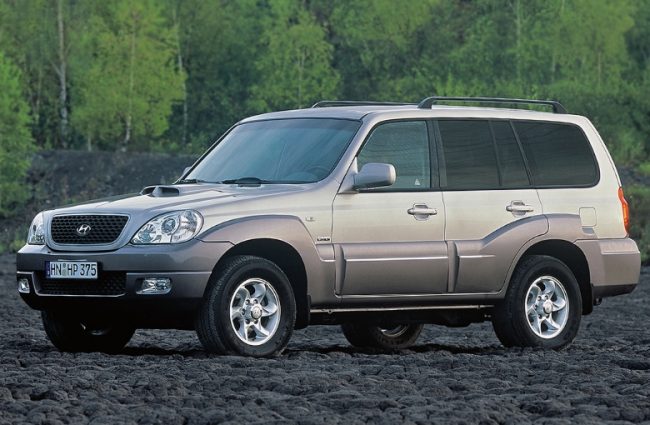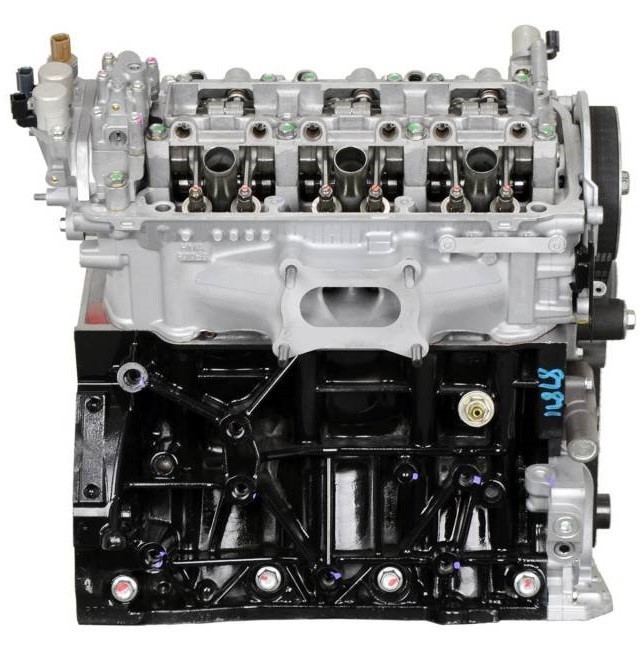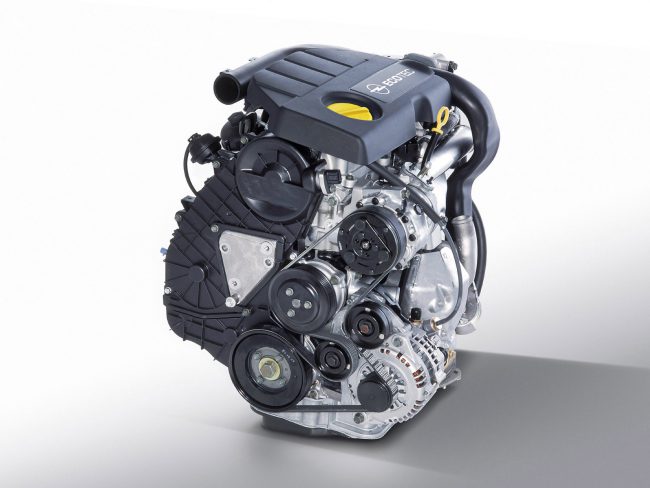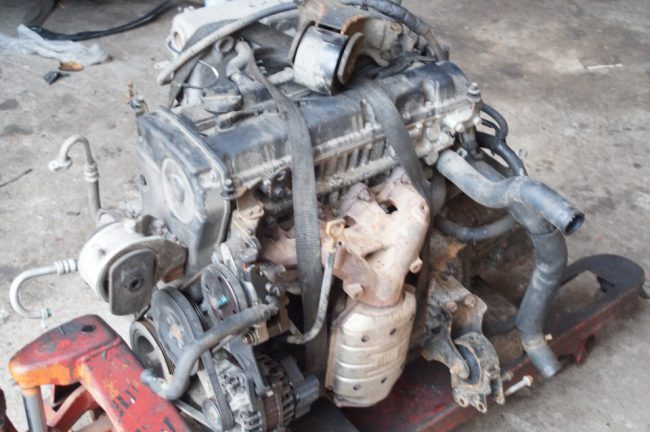
Hyundai Terracan engines
Content
Hyundai Terracan is a licensed continuation of the Mitsubishi Pajero - the car completely duplicates the main characteristics of the Japanese brand. Nevertheless, there are some design features in the Hyundai Terracan that significantly distinguish the car from its progenitor.
The first generation Hyundai Terracan has already managed to get a restyling, which, however, concerns only the exterior design of the body and the vehicle's interior configuration. The technical base, in particular the line of power units, is similar for the models and is based on 2 motors.

J3 - atmospheric engine for the basic configuration
The naturally aspirated J3 engine has a combustion chamber volume of 2902 cm3, which allows it to produce up to 123 horsepower with a torque of 260 N * m. The engine has an in-line 4-cylinder layout and direct fuel injection.

The power unit operates on Euro4 diesel fuel. The average consumption in the combined cycle of operation of the J3 is in the region of 10 liters of fuel. This motor is installed on the basic equipment of the car and is found in the assembly with both a manual gearbox and hydromechanics.
The main advantage of the atmospheric J3 is its flexible temperature regime - regardless of the aggressiveness of operation, the engine is almost impossible to overheat. The power unit is capable of running up to 400 km, while the timely replacement of consumables and high-quality fuel will significantly save on maintenance.
J3 turbo - more power for the same consumption
The turbocharged version of the J3 is designed on the basis of an atmospheric counterpart - the engine also has an in-line 4-cylinder layout with a total volume of combustion chambers of 2902 cm3. The only change in the design of the engine is the appearance of a turbine supercharger and injection pump, which made it possible to achieve more power.
This engine is capable of delivering up to 163 horsepower with a torque of 345 N * m, which are transmitted to all-wheel drive. Optionally, depending on the configuration of the car, the turbocharged J3 can be installed together with a manual transmission or an automatic transmission.


The average fuel consumption of the engine is 10.1 liters of diesel fuel per 100 kilometers in a combined cycle of operation. It is noteworthy that before the manufacturing company managed to maintain the appetite of the atmospheric engine even after installing the turbine and injection pump. Like the naturally aspirated J3, the turbocharged version operates stably only on Euro4 diesel fuel.


Watch this video on YouTube
G4CU - petrol version for the top configuration
The G4CU engine brand is a classic example of powerful yet reliable Korean-made engines. The V6 layout, as well as distributed fuel injection, allow the engine to realize up to 194 horsepower with a torque of 194 N * m. The relatively low thrust in this engine against the background of diesel units is more than offset by its dynamics - the cylinder capacity of 3497 cm3 allows you to accelerate the car to hundreds in less than 10 seconds.


The average fuel consumption of G4CU engines is 14.5 liters per 100 kilometers in a mixed operating style. At the same time, the engine does not digest low-octane gasoline at all - stable operation of the power unit is observed only with AI-95 class fuel or higher. Also, many drivers noted that filling AI-98 gasoline has a positive effect on the dynamics of the power unit.
With timely maintenance and refueling of the engine only with high-quality fuel, the G4CU resource will not yield to diesel engines for this car line.
Which engine is the best car?
The first generation Hyundai Terracan turned out to be carefully selected - it is rather difficult to single out the best engine from the presented line. All motors are available with both manual and hydromechanical transmissions, and only deliver torque to an all-wheel drive transmission. Nevertheless, it is gasoline engines that are especially popular in Russia - it will be much easier to buy a Hyundai Terracan on gasoline on the secondary market.


Watch this video on YouTube
In turn, diesel engines for Hyundai Terracan are characterized by lower fuel consumption and slightly greater reliability, but require professional maintenance. Any work on a diesel engine must be carried out by a certified dealer - otherwise even a minor intervention may result in an expensive repair for the owner in the near future. That is why, before purchasing a Hyundai Terracan in the secondary market, the motor must be shown to a qualified mechanic for diagnostics - the chance to purchase a driven motor is small, but still exists.


